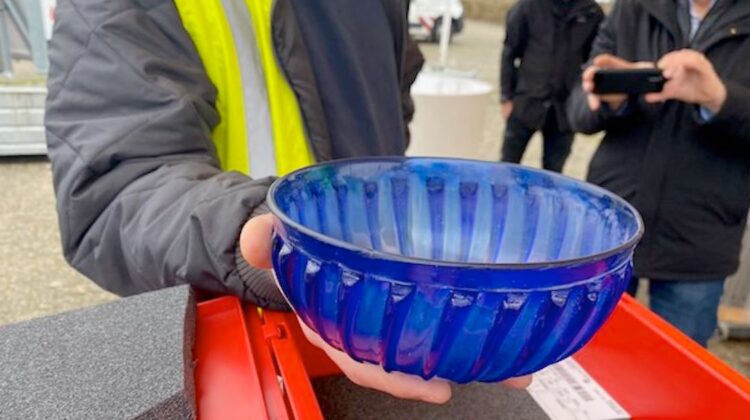
A team of archaeologists in the Netherlands has unearthed a rare Roman glass bowl in excellent condition. The 2,000-year-old object was found in Nijmegen, the oldest city in the Netherlands that was originally settled by the Romans as a military camp.
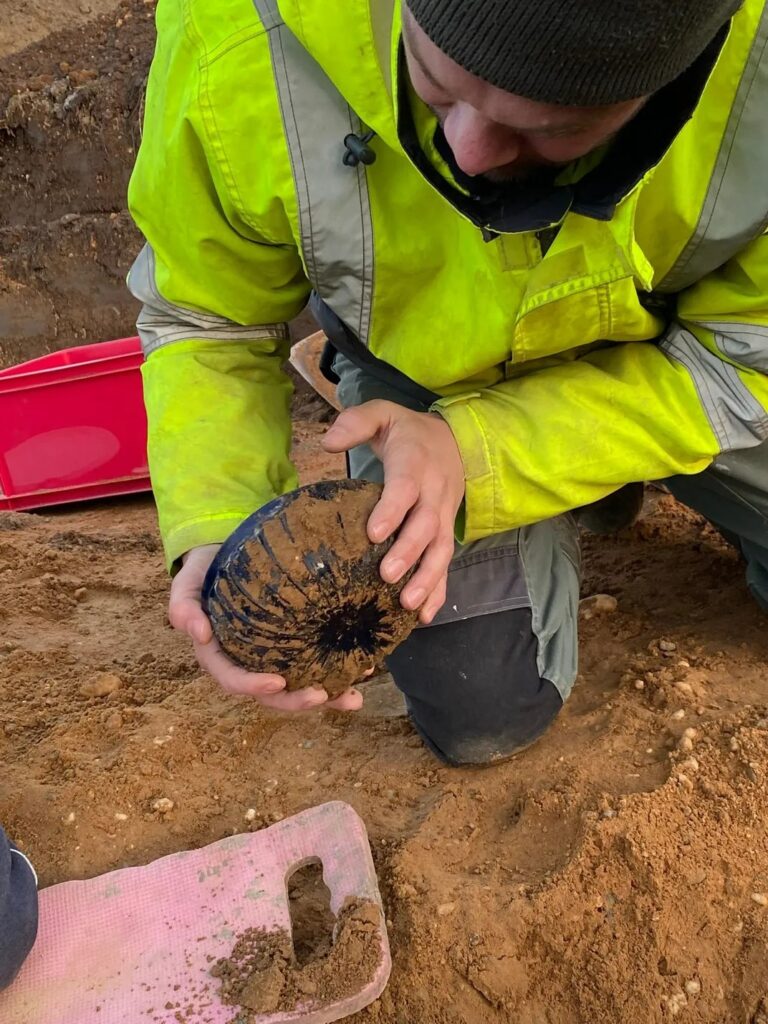
The medium-sized bowl was discovered without any chips or cracks, and the team quickly determined that it was “of Roman manufacture” and most likely made in a glass workshop in Germany or Italy. The deep blue color of the bowl has a ridged texture along the sides.
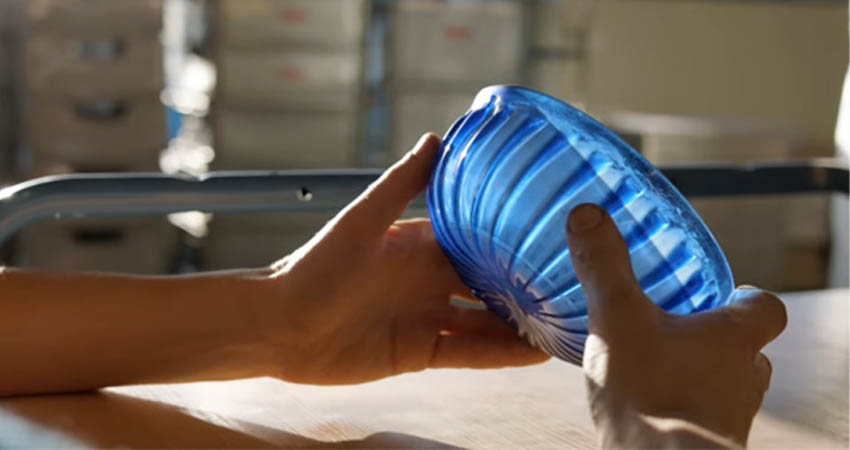
Archaeologist Pepijn van de Geer explained that such dishes were made by allowing molten glass to cool and harden over a mold. The stripe pattern was drawn in when the glass mixture was still liquid. Metal oxide causes a blue color.
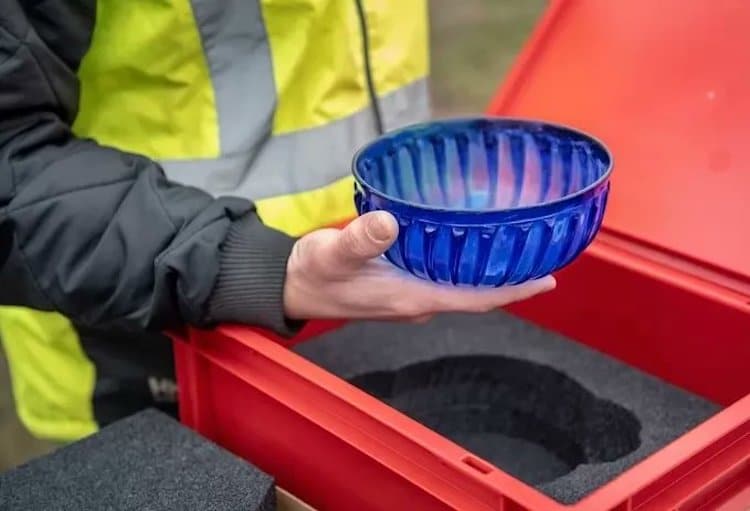
In addition to the bowl, the archaeologists uncovered other findings that shed light on Roman living, such as homes, wells, everyday objects, jewelry, and even graves. This discovery provides a glimpse into the daily life of the ancient Romans, who once ruled over a vast empire that stretched beyond Italy, reaching Spain, Britain, and Germany.
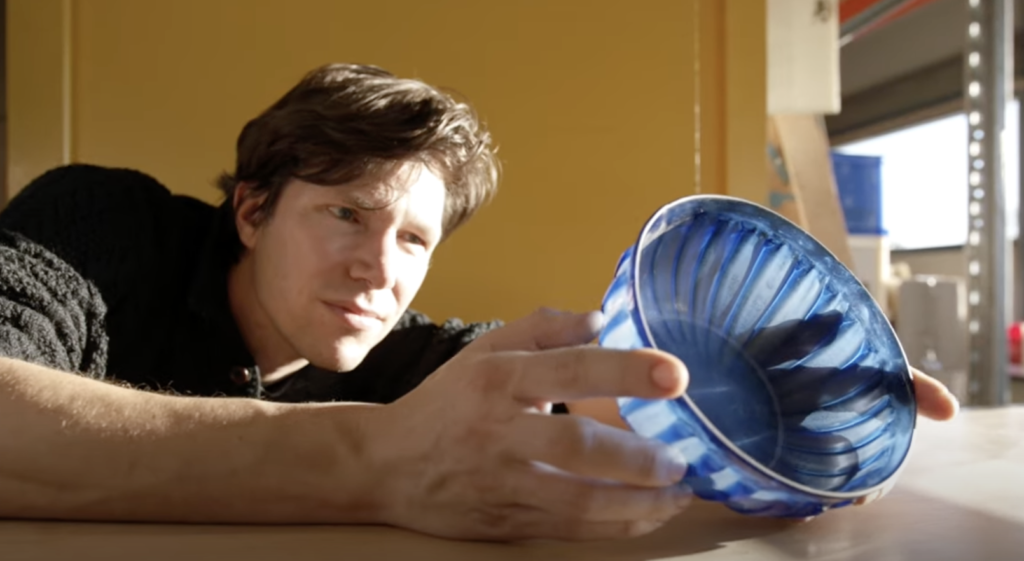
The Nijmegen Roman glass bowl is a remarkable find, as most Roman artifacts are discovered in broken fragments. The bowl’s excellent condition will allow experts to gain a better understanding of ancient Roman craftsmanship and artistry.

The discovery of this rare Roman glass bowl is a testament to the ongoing importance of archaeology in uncovering the secrets of our past. As archaeologists continue to explore the remnants of ancient civilizations, we can gain a greater understanding of our shared history and the achievements of those who came before us.

A blue Roman glass bowl was uncovered in Nijmegen, Netherlands—an ancient city that used to be a Roman settlement. It is estimated to be about 2,000 years old.
h/t: [Open Culture]
